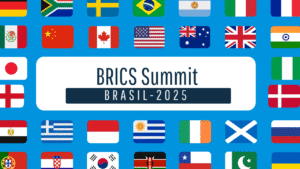The RailOne app will bring all passenger services together on one platform.

Look at the main features here:
On July 1, 2025, in New Delhi, Union Railway Minister Ashwini Vaishnaw released a new app called RailOne.
Officials indicated that RailOne’s main goal is to make it easier for passengers to use the railways.
The Centre for Railway Information Systems (CRIS), which is part of the Railways’ public sector undertaking (PSU), came up with the idea for the app.
The RailOne app brings together all of the services for passengers, such as a 3% discount on platform tickets and unreserved tickets, live train monitoring, e-catering, porter hiring, and cab services at the end of the line.
“IRCTC (the Indian Railway Catering and Tourism Corporation, a public sector company that sells tickets, food, and tourism services for the Railways) will continue to sell reserved tickets.” The IRCTC has also approved the RailOne app, just like it has with many other commercial apps that work with the IRCTC, the spokesperson added.
You can log in to the RailOne app with either an mPIN or your biometrics. It also works with RailConnect and UTS credentials that are already in use. The Indian Railways’ mobile ticketing software, UTS, lets people who travel by train every day book unreserved tickets.
Officials noted that RailOne saves space on devices because you don’t have to install many apps.
Mr. Vaishnaw also praised the CRIS team for the advancements made in modernizing the current Passenger Reservation System (PRS) and urged CRIS to concentrate on further bolstering the digital core of the Indian Railways. “To manage ten times the existing demand, the contemporary PRS will be scalable, multilingual, and adaptable. According to the statement, it will be able to process 40 million inquiries and 1.5 lakh ticket bookings every minute.
“The new PRS will be inclusive and will feature advanced fare calendar and seat choice functionalities, as well as integrated options for patients, students, and divyangjan (people with disabilities),” a spokesperson for Railways stated.

RailOne App: Important features and how to use it
The new RailOne app brings together all of the Indian Railway’s services in one place and gives consumers access to all of them.
You can get the new RailOne app for free on both the Android and iOS App Store and the Play Store.
RailOne lets you log in using an mPIN or a biometric scan.
It also works with the RailConnect and UTS credentials that users already have.
The software also has R-Wallet (Railway e-wallet) features. So, the goal of the RailOne project is to put all of India’s huge rail network under one digital roof.
Significant modifications to the Indian Railways are now in effect.
The Ministry has mandated the use of Aadhaar-verified IRCTC IDs for the booking of tatkal and emergency tickets, effective July 1. The objective of this action is to prevent the system from being abused by IRCTC partner agents who frequently book tickets in quantity, resulting in genuine passengers being unable to secure reservations.
The revision of the initial reservation chart timing is another substantial development in railway services.
Furthermore, Indian Railways has disclosed a minor modification to its existing train fares.
It is important to note that this revision will not affect suburban tariffs, second-class tickets for journeys under 500 km, or monthly season tickets.





Pingback: How to Get Medical Help While Traveling on a Train | Essential Numbers You Need to Know